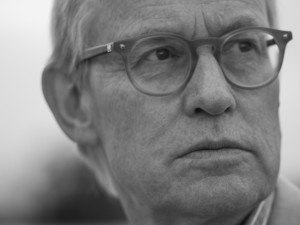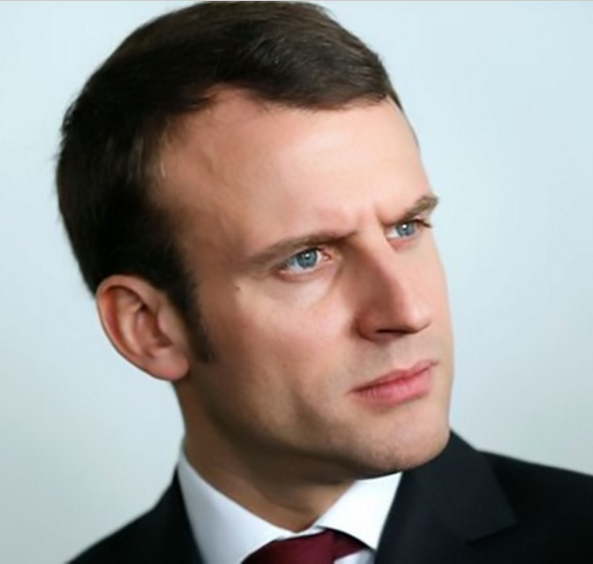30 April 2020
Leadership
in the time of Covid-19.
By Richard Pooley

When I came back from the UK to my village in south-west France on 14 March, the first person to speak to me was Valerie, owner of one of the two boulangeries. “Your Prime Minister is crazy, completely crazy!” I reminded her that I had last seen her in December just before returning to the UK to campaign against Boris Johnson. He was not my prime minister. She scoffed at such sophistry. My Monsieur Johnson and, by extension, the English (like nearly all French people she uses les anglais to refer to the British) were behaving stupidly and not only putting their own lives at risk but also those of their neighbours.
Two days later President Macron informed the French that they would go into lockdown from midday on 17 March. I made sure I got my daily bread well before noon and found Valerie alone, except for her husband, Dominique. She insisted that I addressed him as tu, rather than the more formal vous. Perhaps this was her way of apologising for her outburst (I had been tutoyering her for three years). I asked her what Johnson was doing wrong and was surprised by her knowledge of the shambolic nature of the UK government’s response to Covid-19 over the previous two months. It was her final sentence which has stayed with me: “Monsieur Johnson. Il n’est pas le chef d’État.” Strictly speaking, she’s right. The Queen is the UK’s head of State. And some French think she wields much greater power than she actually does (her address to the British people on 5 April was headline news in France and apparently watched by over two million French people). But I think Valerie was not being literal. She was saying that the British Prime Minister was not behaving as a leader of his country should.
We have been told that it is pointless comparing the apples of the UK’s Covid-19 statistics with the pears of France’s numbers and the tomatoes of Spain’s figures. Quite right. But I believe we are justified in comparing the effectiveness of the leadership styles on display around the world. The UK media have given an inordinate amount of attention to the behaviour and utterances of the blond-haired head of state across the Atlantic when their readers, equally obsessed, might have found it more useful to have learned how other country heads have been doing, especially those in Europe. After all, it is Britain’s closest neighbours who we are going to have to cooperate with most if we are going to recover from this health and economic crisis, however we Brexit.
Note that I have avoided using the word “leader” in that paragraph. For me an effective political leader is someone who, in a time of deep crisis, can persuade their people to accept what they are asking them to do, however difficult. That includes people who in normal times utterly disagree with him or her. Winston Churchill is usually cited as a great leader. He was. During the crisis that was the Second World War, the British and the people of the British Empire were persuaded by him to follow his lead, even though millions hated him for what he had done in his long political career beforehand.
I spent much of my working life training managers to be better managers, especially in the international arena. Towards the end of my career, I was frequently asked to run Leadership courses. I always refused, though I was happy to run supporting modules such as Effective Communication for Leaders and run coaching sessions for CEOs. I believe leaders – in business, politics, the armed forces, sport – are born and not made. Anyone can be a manager; few are leaders.
When pressed by my students as to what makes a good leader, I used the acronym CAN, though NCA would have been more accurate, if less memorable. A leader is someone who can: (a) name an objective, set a course, and allocate tasks to subordinates (Navigate); (b). Communicate with everyone from first to last, ensuring that all remain convinced that together they are going in the right direction in the right way; and (c) Adapt tactics, tasks and communication style (but never the final objective) swiftly as the situation develops.
An article on the BBC website alerted me recently to the work of Dutch professor Arjen Boin. He has co-authored a book called The Politics of Crisis Management; Public Leadership Under Pressure, based on decades of research. In it he emphasises how important it is in a crisis for political leaders to deliver clear and consistent messages. They must not sugar-coat bad news. At the outset of any crisis the message from the leader must do the following:
a. describe how and why the crisis occurred;
b. outline a plan to deal with it;
c. give people hope that the crisis will end;
d. show empathy for what people are going through;
e. demonstrate that the government is in control and hence worthy of the people’s trust.
All communication and behaviour by the leader subsequent to this must reinforce c, d and e.
In the article, it is Jacinda Arden, Prime Minister of New Zealand, who is shown to have done exactly this when handling the Covid-19 pandemic. So, how has President Macron done?
Though Valerie the baker may not want to admit it, Macron, like Boris Johnson, did not take the crisis seriously at the beginning. The French were told in January by their Health Minister that they had nothing to fear; their superb health service could deal with anything thrown at it. The draconian lockdown imposed by the Italians in parts of northern Italy in late February was seen as an overreaction. But by early March, Macron realised that the health crisis was real and imminent. On 12 March he spoke to the nation, explaining the situation and saying what action had to be taken: all education would be stopped, those over 70 should stay at home, large gatherings would be banned, people should keep a safe distance apart, etc. It fulfilled Boin’s job a. but little else. People ignored it, as I saw myself the next day in Toulouse (see comment Will Covid-19…).
Macron realised the French had not woken up to the seriousness of the situation. They had to know they were in a war. Indeed, that was the message, repeated six times, in his speech to the French people just four nights later in which he announced their confinement (without actually using that word): “Nous sommes en guerre.” Did the speech do Boin’s five jobs? Its content would suggest it did. I decided to watch it again because my memory of it was that he had come across as hectoring, talking of the punishments that would be applied if people disobeyed. My memory had not deceived me. He achieved a, b, and e. But the hope and empathy were lacking (though I did love his urging that we “read; find what really matters.”)
Even so, much to the surprise of ever-cynical French commentators, nearly all French have done what Macron asked them to do. Maybe his headmasterly demeanour was what the French required from their leader. It’s certainly what they expected from him.
Having defined the objective and set the nation’s course, Macron handed over the management of the crisis to his Prime Minister, Édouard Philippe, his ministers and an advisory committee of medical and statistical experts. Jobs were clearly defined, it seems. Ministers were regularly grilled by the media on their departments’ handling of the crisis. The scientists were encouraged to share their knowledge and differing opinions with the public, without being chaperoned by ministers (as happened in the UK during the rudderless three weeks of Johnson’s absence). The French felt they were being included in the government’s decision-making and have been happy to join in the national debate (see comment L’Affaire Raoult).
On 13 April, Macron delivered another speech, this time telling the French what they could expect to happen when deconfinement starts on 11 May. 37 million French people tuned in to listen to him. It was a tour de force (https://www.leadersleague.com/en/news/president-macron-s-april-13th-address-to-the-nation). I have analysed (and written) a few speeches in my time. This is one of the best I have heard. He fulfilled all five of Boin’s jobs, even admitting that the government had not been well enough prepared. “Cracks” and “shortages” had been revealed. The French heard language that they had never heard from their arrogant young president: “With humility, I must tell you that we need to take decisions and act – despite the uncertainties we are confronted with – in a clear-headed manner”. “I know what you are thinking. You want to know how long until things get back to normal. I would love nothing more than to be able to tell you, but in all honesty, we simply don’t know.” He told them in some detail what restrictions would be eased from 11 May. He assured them that “Better days lie ahead; happy days will be here again.” His approval ratings shot up (though they have dropped a little since).
On Tuesday this week Édouard Philippe spent almost an hour telling the National Assembly and tens of millions of watching French what policies the government would like to implement from 11 May. The new rules will not be imposed by government decree. The deputies are debating them and will have the final say. There is no doubt that they will agree. Macron’s LREM party still has a majority. But the signal is clear: we, the government, trust you, the people, to make the right decisions.
Macron has had a good crisis so far. Even my gilet jaune friends Philippe and Marie, who look after my car when I’m not here, are prepared to give him that. Will they and the hundreds of thousands of gilets jaunes renew their protests this summer? Probably. They will want to see if the “President of the Rich” really has reinvented himself, as he promised in the most startling paragraph of his speech:
“We must also bear in mind that today, our country’s future is in the hands of those men and women who our economy values and pays so poorly. ‘Social distinctions can only be based on public utility.’ These words, the French wrote down more than 200 years ago. We must pick up the baton and give new meaning to them. We must build a new world with a lower carbon footprint, one based on prevention and sustainability, so that we can cope with the crises our world has yet to face. These are important issues, but are not enough by themselves. There will be a time to speak about them after the current crisis. This crisis is personal for all of us and has brought home how vulnerable we all really are, something we had no doubt forgotten. This is not a time for falling back on comfortable ideology. We need to get off the beaten track, reinvent ourselves and find new ways of living, not least of all me.”


